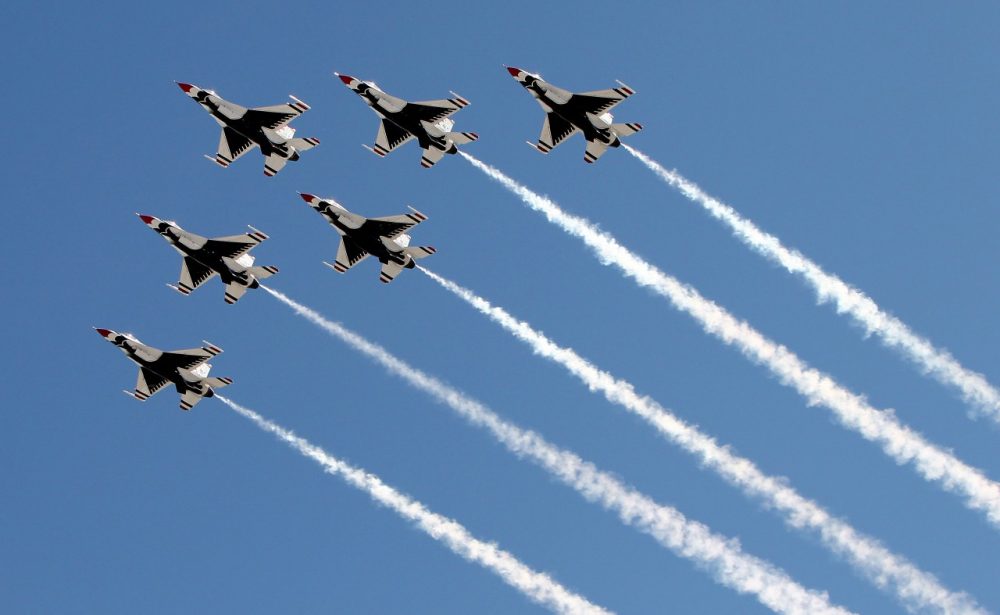Advertisement
A Case For Abolishing The Air Force
Resume
The U.S. Air Force was founded in 1947, right after the heroics of American flyers during World War II, and with the Cold War looming. But a new book argues the Air Force, as a separate branch of the military, should be abolished.
In "Grounded: The Case for Abolishing the United States Air Force," author Robert Farley says that while the U.S. still needs air power, that power shouldn't be segregated — it should be part of the Navy or the Army.
Farley, who is also an assistant professor at the University of Kentucky's Patterson School of Diplomacy, joins Here & Now's Jeremy Hobson to make his case.
Interview Highlights: Robert Farley
On the problem with a separate Air Force
"The creation of the Air Force, which started in 1947, erected unnecessary bureaucratic barriers between the missions the military most often does. Pretty much everything the military does on a daily basis requires some sort of conjunction between air power and sea power and land power. And we created the air force with the idea that air power could do a lot of the jobs by itself. And I think that idea was wrongheaded in 1947 and I think we have much more evidence that it’s wrongheaded today."
"The capabilities that we've allocated to the Air Force we have largely allocated by choice, rather than by any chance of natural design. So for example the Army doesn't have any capability — besides helicopters, doesn't have any capability of medical rescue. But the reason it doesn't have that capability is essentially because the Air Force took that responsibility away from it."
On the timing of his proposal
"I think actually right now is ideal in terms of thinking about potential for military reform. We’re winding down the two wars we’re having right now and we are re-orientating toward an entirely different form of military preparedness, which is in terms of what we've heard about the Pacific pivot … and it seems to me that right now when we don’t actually see a lot of conflicts on the immediate horizon, it’s a great time to think about how we might reform our military services for the future."
On the idea of the Air Force projecting power around the globe
"It’s an argument that people commonly make as to why we need the Air Force — that we need the global capability to strike anywhere in the world. But it’s interesting that when we look at how we've actually used that strike capability in the past, and how we’re using it right now, very often our global strike is through tomahawk missiles that are launched by U.S. surface ships and U.S. submarines. And so while this idea of having this 24-hour, anywhere in the world, 15-minute strike capability, sounds kind of awesome, it always runs into political difficulties and all sorts of political obstacles and we never seem to really take advantage of it.
Guest
- Robert Farley, assistant professor at the University of Kentucky's Patterson School of Diplomacy and the author of "Grounded: The Case for Abolishing the United States Air Force." He tweets @drfarls.
This segment aired on January 21, 2014.